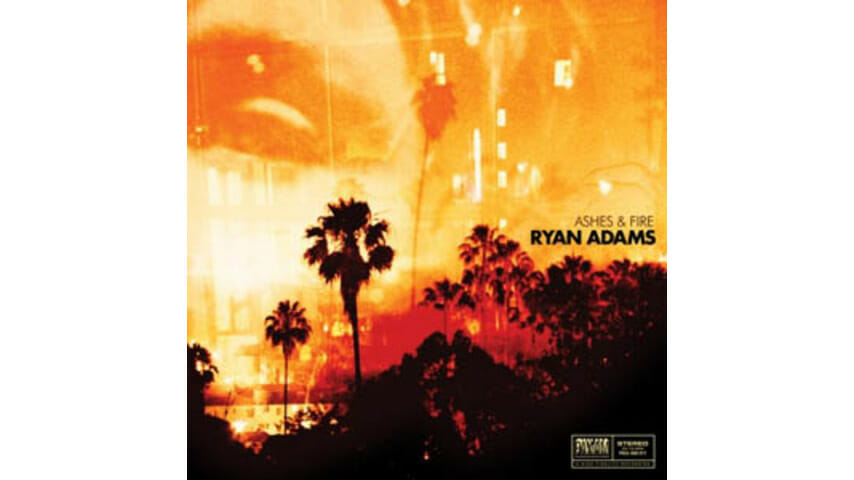Ryan Adams: Ashes & Fire

I’ve talked to more than one person who is concerned that a happily married Ryan Adams, one without destructive forces compelling him from within and without, one who is as focused as a person who creates at a pace that defies the existence of an attention span, one who isn’t mixing coke with heroin with whiskey with about a hundred songs a month, won’t discover the same depths or reach the same heights as before. I disagree, and not just because I write much better sober than hungover, much better hungover than drunk and marginally better drunk than asleep. I disagree because I don’t see any reason why a happy, healthy artist should have trouble making a piece of art that is visceral and substantial. I won’t disagree that some amazing music has been born of pain and misery, but if I were a betting man, I’d bet sunny days have led to success at least a few times before.
-

-

-

-

-

-

-

-

-

-

-

-

-

-

-

-

-

-

-

-

-

-

-

-

-

-

-

-

-

-

-

-

-

-

-

-

-

-

-

-








































